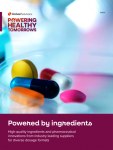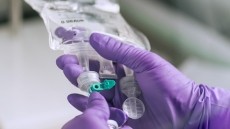West: Proprietary Products Propped by Packaging and Manufacturing

Total revenues for fiscal year 2012 were up 10 percent on 2011, totaling $1.27bn (€960m) of which $227m and $94m came from packaging and delivery systems respectively, though net profit only grew modestly on last year to $80.7m.
David Windley, an analyst from Jeffries, said that though packaging components had been expected to wane, West “continues to see robust activity” in the sector. “The demand is driven by new customer plants in China and contract opportunities in the Middle East, Africa, and Far East.”
West CEO Don Morel made his intentions clear on moving towards high-end production and, on a company conference call, said: “Clearly the investments we made over the past two years in washing and vision systems are bearing fruit.”
He continued, adding: “With continuing product conversions by our customers and new products coming to the market, we expect the high value products to continue their growth for the foreseeable future.”
Last August, West began construction on a pharmaceutical packaging plant in India in light of the growing importance of the Asia-Pacific market.
However, plans show that the plant will commence with more traditional stoppers and closures manufacture keeping supply of high-end products for West’s Asian clients coming from West’s Singapore facility.
Crystal Zenith Drug Delivery
At the end of the first quarter of 2012, West spoke of its intention to restructure its business model away from the 80/20 split between contract manufacturing and proprietary products, concentrating specifically on its Crystal Zenith (CZ) delivery system.
Though the company saw a 16 percent increase in sales of its proprietary systems, CZ - a silicone-free, ready-to-use prefillable syringe system developed by Daikyo - only contributed $9m to the total, falling slightly short of 2012 guidance.
Muted sales is due to regulatory factors, as two years of stability testing is necessary for the injectable before FDA (US Food and Drug Administration) approval for commercial scale can be requested.
“While revenues during the next year and a half are expected to be somewhat lumpy,” said Morel, “the formal stability trials put a stake in the ground in terms of timing for commercialization.”
West has already started clocking up clients and still expects substantial commercial sales to come in the next few years.
Windley said that revenue from CZ “should grow to $12-14m in 2013. More importantly, substantial commercial CZ orders (the inflection point) aren't expected until 4Q 2015 or early 2016.”


















